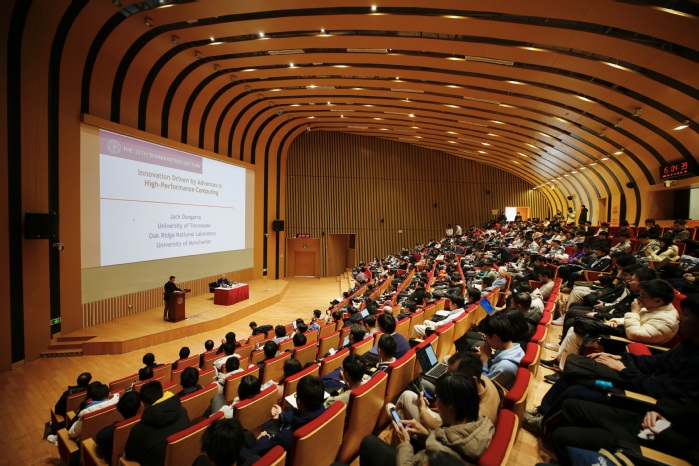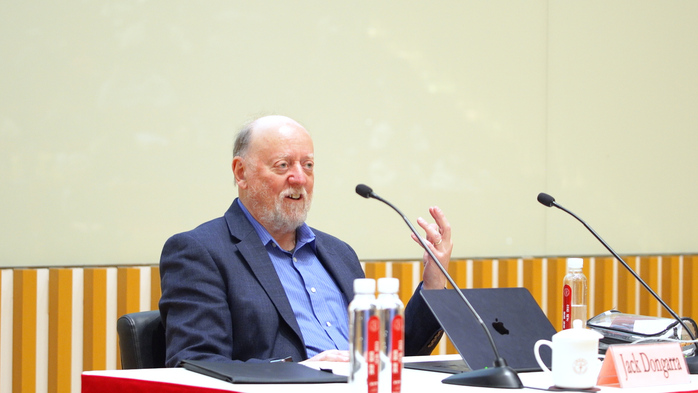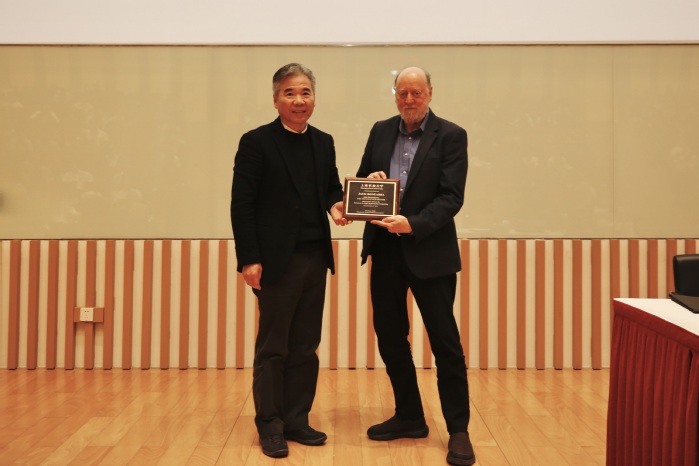High-performance computing (HPC) has revolutionized numerous fields ranging from physics, chemistry, biology, to climate science, enabling groundbreaking advancements in areas like drug discovery, materials science, and climate modeling. On January 17, Jack Dongarra—pioneering computer scientist, A.M. Turing Award winner, and distinguished professor at the University of Tennessee—delivered a thought-provoking talk at “ShanghaiTech Lecture” series.

Professor Dongarra, a luminary in the HPC research, has been dedicated to advancing computational science for decades. Since 1993, he has collaborated with Hans Werner Meuer and others to create the TOP500 List —a globally renowned ranking list of supercomputers. This ranking, which tracks the latest developments in global supercomputing in terms of system performance, technological trends, and more, has spurred innovation and competition in HPC, pushing the boundaries of computational capabilities and advancing both hardware and software. Dongarra’s contributions to efficient numerical algorithms for linear algebra calculation, parallel computing programming mechanisms, and performance evaluation tools have significantly shaped the development of HPC. In 2021, he was awarded the highest honor in computer science, the A.M. Turing Award, for his outstanding contributions to the field of HPC.
The event, hosted by Yu Jingyi, vice provost and dean of the School of Information Science and Technology, attracted over 300 audience to the University Auditorium. Titled “Innovation Driven by Advances in High-Performance Computing,” Dongarra’s talk gave a brief overview of HPC’s development, from scalar to vector, distributed memory to accelerators, and single-precision to mixed-precision computing. He emphasized the never-stopped evolution in HPC, discussed the significance and limitations of benchmark testing, and highlighted the increasing need for new benchmark testing as AI applications expand. Dongarra underscored the importance of optimizing data transmission in future computer architectures and predicted that future computers will achieve a better balance between data transmission performance and floating-point computation performance. He also noted that algorithms and software must evolve alongside with hardware advancements, pointing to vast opportunities for further innovation in HPC.

The Q&A session sparked lively engagement, with audience members posing insightful questions on topics ranging from the challenges of benchmark testing and performance-accuracy trade-offs to the inspiration of human brain for HPC and the influence of AI on supercomputing. Dongarra provided thoughtful responses, offering a glimpse into the future of HPC and its role in shaping technological progress. In closing, Vice President Zhu Zhiyuan presented Professor Dongarra with a “ShanghaiTech Lecture” certificate on behalf of the university.

Vice President Zhu Zhiyuan (left) and Professor Jack Dongarra (right)
This event marked the 22nd installment of the “ShanghaiTech Lecture” series and its first edition in 2025. Launched in 2016, the “ShanghaiTech Lecture” invites distinguished experts, scholars, and leaders from various fields to provide students, faculty, and the public with opportunities to engage with cutting-edge technology and science. The lecture series aims to foster an environment of intellectual exchange and innovation on campus.

